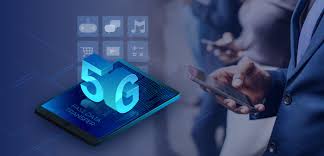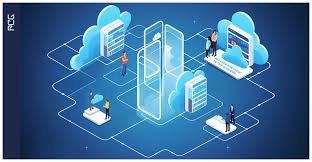The Role of 5G in Revolutionizing Mobile and Web Development
The arrival of 5G technology is one of the most significant advancements in recent years, transforming the way mobile and web applications function. With ultra-fast speeds, low latency, and improved network reliability, 5G is paving the way for a new era of digital experiences. Businesses and developers are leveraging this technology to create innovative applications that deliver seamless performance, real-time interactivity, and enhanced user experiences.
One of the biggest impacts of 5G on mobile and web development is its ability to provide lightning-fast data transmission speeds. Unlike 4G, which often experiences network congestion and delays, 5G offers speeds up to 100 times faster. This improvement allows developers to create applications that can handle high-definition video streaming, real-time gaming, and augmented reality (AR) experiences without buffering or lag. Users can enjoy smoother interactions, even in data-intensive applications.
The low latency of 5G—reducing delays to just a few milliseconds—enables real-time responsiveness for applications that require instant interactions. This is particularly crucial for industries like healthcare, where telemedicine applications rely on high-speed connections for remote diagnostics and virtual consultations. Similarly, in the automotive industry, autonomous vehicles benefit from ultra-low latency for real-time decision-making and navigation.
5G is also reshaping cloud computing and edge computing in web and mobile development. With faster network speeds, applications can offload processing tasks to the cloud, reducing the need for powerful on-device hardware. This allows developers to build lightweight applications with enhanced performance and battery efficiency. Additionally, edge computing—where data processing occurs closer to the user—enhances real-time analytics, security, and application responsiveness.
The impact of 5G extends to IoT (Internet of Things) applications, where connected devices communicate seamlessly in smart homes, industries, and cities. With better network stability and minimal interference, IoT-enabled applications can operate efficiently, unlocking new possibilities in automation, remote monitoring, and data-driven decision-making.
Security and data privacy remain crucial considerations as 5G adoption increases. The ability to transmit vast amounts of data at high speeds requires robust cybersecurity measures to prevent potential threats and vulnerabilities. Developers must implement encryption, multi-factor authentication, and data protection strategies to ensure secure digital experiences.
With 5G, mobile and web development are entering a new phase of innovation. Businesses that embrace this technology will benefit from enhanced user experiences, faster application performance, and new opportunities in AI, IoT, and cloud computing. As the world moves toward a hyper-connected future, 5G will continue to shape the next generation of mobile and web applications.







